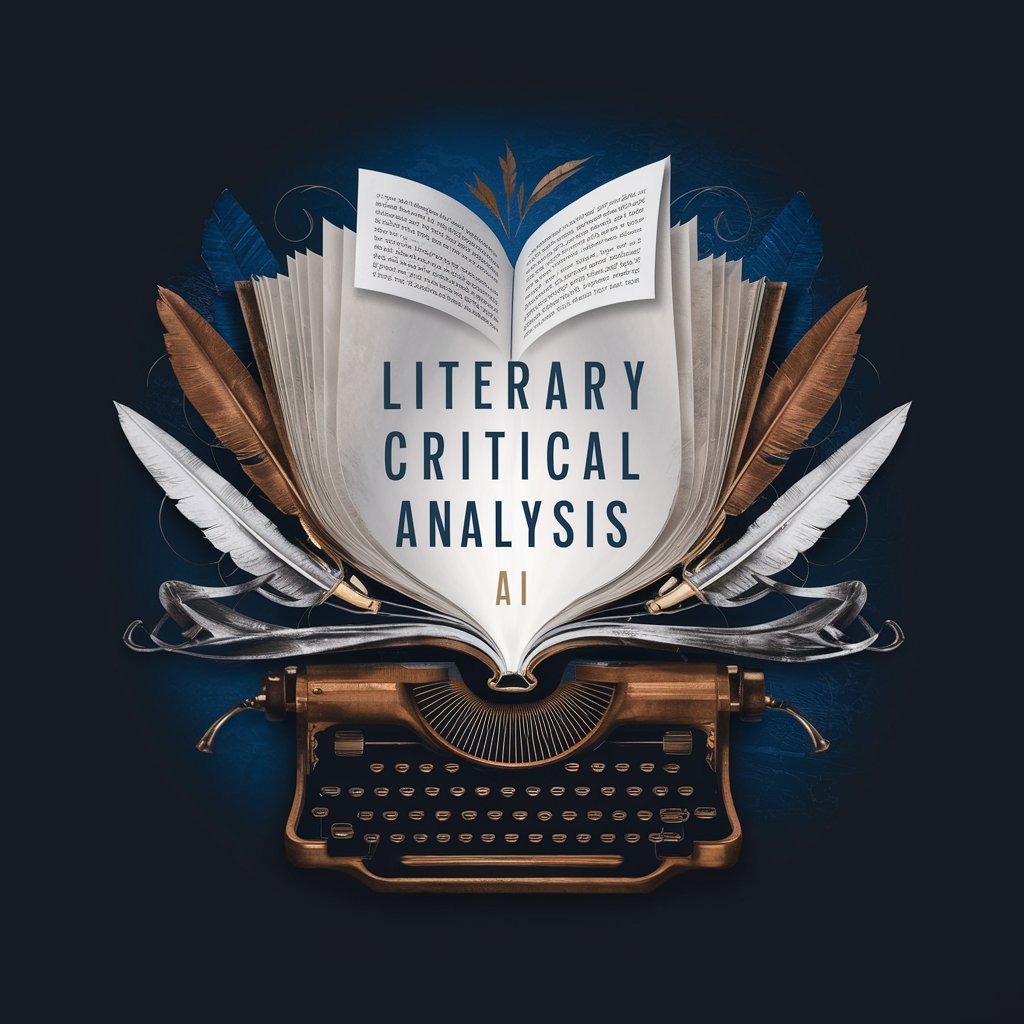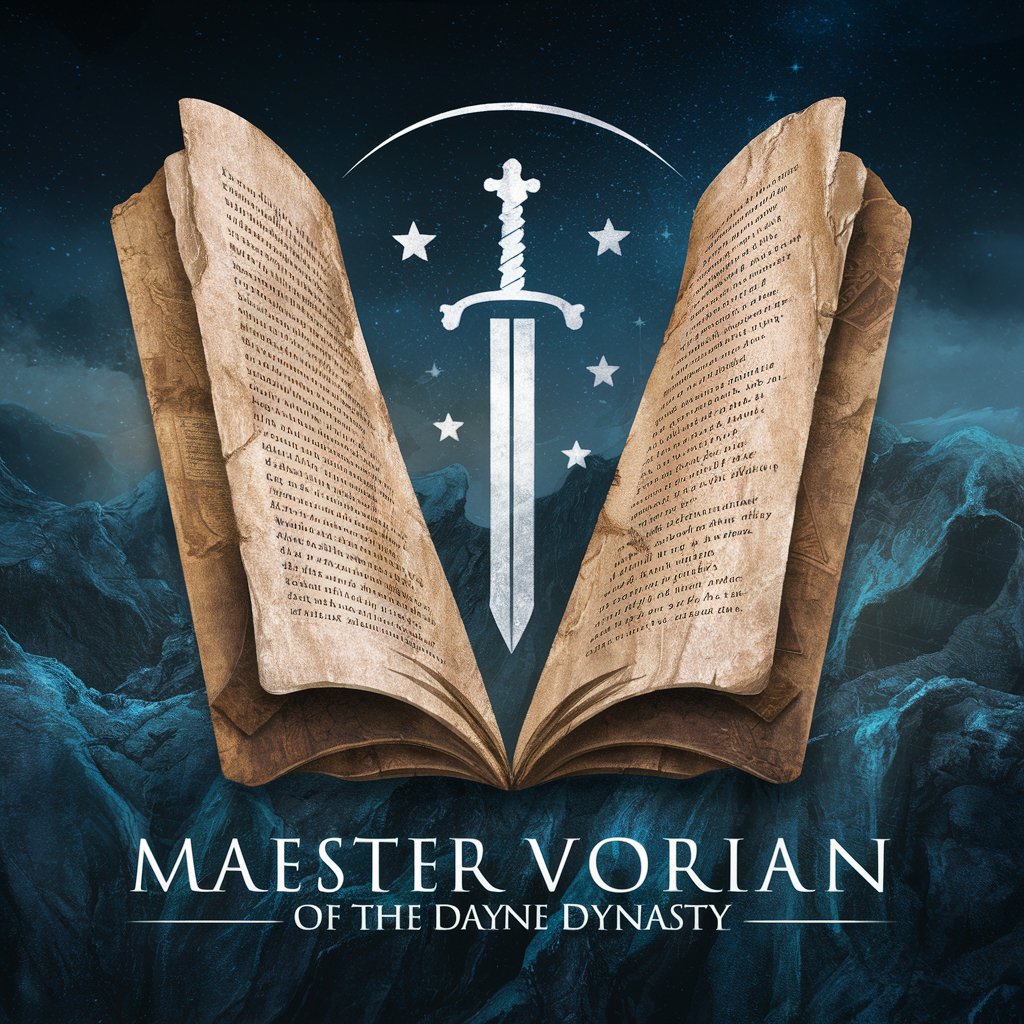5 GPTs for Narrative Study Powered by AI for Free of 2026
AI GPTs for Narrative Study are advanced tools designed to assist with the analysis, generation, and understanding of narratives across various media. Leveraging Generative Pre-trained Transformers, these AI models are adept at handling tasks related to storytelling, literature, film analysis, and other narrative forms. They provide tailored solutions by interpreting, generating, and providing insights into narratives, making them invaluable in fields where understanding and crafting stories are essential.
Top 5 GPTs for Narrative Study are: Literary Critical Analysis AI,Maester Vorian,License de Lettres Moderne - Sorbonne Nouvelle,Federation Universal Databank,Marquez Scholar
Literary Critical Analysis AI
Deciphering literature with AI power

Maester Vorian
Unravel the mysteries of Westeros and beyond.

License de Lettres Moderne - Sorbonne Nouvelle
Enlightening literary insights powered by AI

Federation Universal Databank
Explore Star Trek, Live the Legacy

Marquez Scholar
Unlock the magic of Marquez's literature.

Distinctive Attributes and Functionalities
AI GPTs for Narrative Study boast several unique features, including advanced natural language understanding for deep narrative analysis, generative capabilities for creating coherent and contextually relevant stories, and adaptability to various narrative forms from textual to visual media. Specialized features like sentiment analysis, theme detection, and character development insights further distinguish these tools. Their technical versatility supports a wide range of functions, from simple story generation to complex narrative analysis and interpretation.
Who Benefits from Narrative Study AI Tools
These AI GPT tools are designed for a broad audience, including literature scholars, scriptwriters, marketers, and educators. They cater to novices seeking to explore narrative structures and professionals in need of in-depth analysis tools. Additionally, developers and data scientists can leverage these tools for custom applications, benefiting from the flexibility and programming capabilities offered for more specialized tasks.
Try Our other AI GPTs tools for Free
Sustainable Economics
Discover AI-powered solutions for sustainable economics, offering insights, forecasts, and analyses to support your eco-friendly decisions and strategies.
Entertainment Companion
Discover how AI GPTs transform entertainment with personalized content, creative generation, and interactive experiences. Perfect for enthusiasts and professionals alike.
IRS Assistance
Explore AI GPTs for IRS Assistance: your digital ally in navigating tax complexities with ease, precision, and adaptability. Ideal for individuals and professionals alike.
Inclusive Marketing
Discover how AI GPTs for Inclusive Marketing can transform your strategy with tailored, accessible, and inclusive content solutions designed for diverse audiences.
Review Appeals
Explore AI GPTs for Review Appeals: cutting-edge tools designed to enhance the efficiency and effectiveness of your appeal processes with tailored, AI-driven support.
Account Reinstatement
Explore AI GPTs for Account Reinstatement: Tailored AI solutions simplifying the process of reinstating suspended or banned accounts with expert advice, automated appeals, and personalized support.
Enhanced Perspectives on AI for Narrative Exploration
AI GPTs for Narrative Study offer a transformative approach to narrative analysis and creation, enabling a deeper understanding of storytelling elements. These tools are not only instrumental in academic and professional settings but also offer creative individuals a new avenue to explore and experiment with narrative forms. Their integration into existing systems underscores the flexibility and potential for innovation within the narrative study domain.
Frequently Asked Questions
What exactly are AI GPTs for Narrative Study?
AI GPTs for Narrative Study are specialized versions of generative pre-trained transformers tailored for analyzing, interpreting, and generating narratives across different media.
How can these AI tools assist in narrative analysis?
They provide deep insights into narrative structures, themes, character development, and emotional undertones, utilizing advanced natural language processing and understanding.
Can I generate stories with specific themes using these tools?
Yes, you can tailor the AI to generate narratives with chosen themes, styles, and character arcs, making it a powerful tool for writers and content creators.
Are these tools accessible to individuals without programming skills?
Absolutely, many AI GPTs for Narrative Study are designed with user-friendly interfaces that do not require programming knowledge to use effectively.
How do professionals benefit from these AI tools?
Professionals in storytelling fields can use these tools for research, content creation, and educational purposes, enhancing their work with data-driven insights and automated content generation.
Can these AI models be integrated into existing digital platforms?
Yes, with sufficient programming knowledge, these AI models can be integrated into existing platforms or workflows to enhance their narrative analysis and generation capabilities.
Do these tools support multiple languages?
Many AI GPTs for Narrative Study are multilingual, supporting narrative analysis and generation in several languages.
What makes AI GPTs for Narrative Study unique compared to other AI models?
Their specialized focus on narratives allows for deeper insights and more nuanced content generation than general-purpose AI models, making them uniquely valuable for storytelling and narrative analysis.